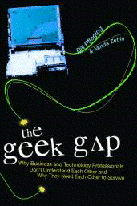Better than Cloning?
From the You-Can't-Make-This-Stuff-Up files:
In 2004, South Korean Hwang Woo-Suk announced that he was the first in the world to extract live stem cells from a cloned human embryo. Stem cells, of course, are the darlings of medical researchers everywhere, as they can pretty much turn into whatever you want them to. They make the prospect of growing someone a new kidney, or repairing brain cells destroyed by Alzheimer's seem tantalizingly close (which is why the Reagan family has broken ranks with the Republican Party over stem cell research).
Being able to produce the things by cloning opens a wide range of scientific possibilities, and Hwang, who had paid for his schooling by working on a farm and claimed to work seven days a week was ballyhooed. He became a national hero. Stamps were issued with his picture on them.
And then the news broke: Hwang had lied from the beginning. He never cloned those embryos. They were, in fact, donated by female researchers in his lab. Information in his Science article about his cloning achievement turned out to be mostly false. "I was blinded by work and my drive for achievement," he told an interviewer at the time.
Disgraced, stripped of his many prestigious posts, Hwang was indicted for fraud and embezzlement. The mighty had fallen, and the world had another cautionary tale about an overachiever driven to deception when he couldn't produce the results he aimed for by honest means.
But wait, there's more. Yesterday, researchers from the newly launched journal Cell Stem Cell took a second look at Hwang's cells and announced that they did indeed represent a groundbreaking achievement. It was just a different one from the one Hwang claimed.
Parthenogenesis is scientists' term for the an egg that becomes an embryo on its own without the benefit of sperm. It's also aptly called "virgin birth," and researchers have been trying to do it for years. They've managed to create parthenogenesis in animal eggs, but have never succeeded in human eggs that lived long enough to extract stem cells. But apparently, Hwang did just that, accidentally stimulating the eggs into becoming embryos while he was trying to clone them. Human parthenogenesis raises the tantalizing possibility of creating cells and organs that are an exact genetic match to a female patient, among other things. Some researchers say Hwang's breakthrough was even more useful than cloning stem cells would have been. So he may be a liar and a criminal, but he's made a great contribution to science...by accident.
Sounds kinda like the plot of a TV movie, doesn't it?
In 2004, South Korean Hwang Woo-Suk announced that he was the first in the world to extract live stem cells from a cloned human embryo. Stem cells, of course, are the darlings of medical researchers everywhere, as they can pretty much turn into whatever you want them to. They make the prospect of growing someone a new kidney, or repairing brain cells destroyed by Alzheimer's seem tantalizingly close (which is why the Reagan family has broken ranks with the Republican Party over stem cell research).
Being able to produce the things by cloning opens a wide range of scientific possibilities, and Hwang, who had paid for his schooling by working on a farm and claimed to work seven days a week was ballyhooed. He became a national hero. Stamps were issued with his picture on them.
And then the news broke: Hwang had lied from the beginning. He never cloned those embryos. They were, in fact, donated by female researchers in his lab. Information in his Science article about his cloning achievement turned out to be mostly false. "I was blinded by work and my drive for achievement," he told an interviewer at the time.
Disgraced, stripped of his many prestigious posts, Hwang was indicted for fraud and embezzlement. The mighty had fallen, and the world had another cautionary tale about an overachiever driven to deception when he couldn't produce the results he aimed for by honest means.
But wait, there's more. Yesterday, researchers from the newly launched journal Cell Stem Cell took a second look at Hwang's cells and announced that they did indeed represent a groundbreaking achievement. It was just a different one from the one Hwang claimed.
Parthenogenesis is scientists' term for the an egg that becomes an embryo on its own without the benefit of sperm. It's also aptly called "virgin birth," and researchers have been trying to do it for years. They've managed to create parthenogenesis in animal eggs, but have never succeeded in human eggs that lived long enough to extract stem cells. But apparently, Hwang did just that, accidentally stimulating the eggs into becoming embryos while he was trying to clone them. Human parthenogenesis raises the tantalizing possibility of creating cells and organs that are an exact genetic match to a female patient, among other things. Some researchers say Hwang's breakthrough was even more useful than cloning stem cells would have been. So he may be a liar and a criminal, but he's made a great contribution to science...by accident.
Sounds kinda like the plot of a TV movie, doesn't it?



0 Comments:
Post a Comment
Subscribe to Post Comments [Atom]
<< Home